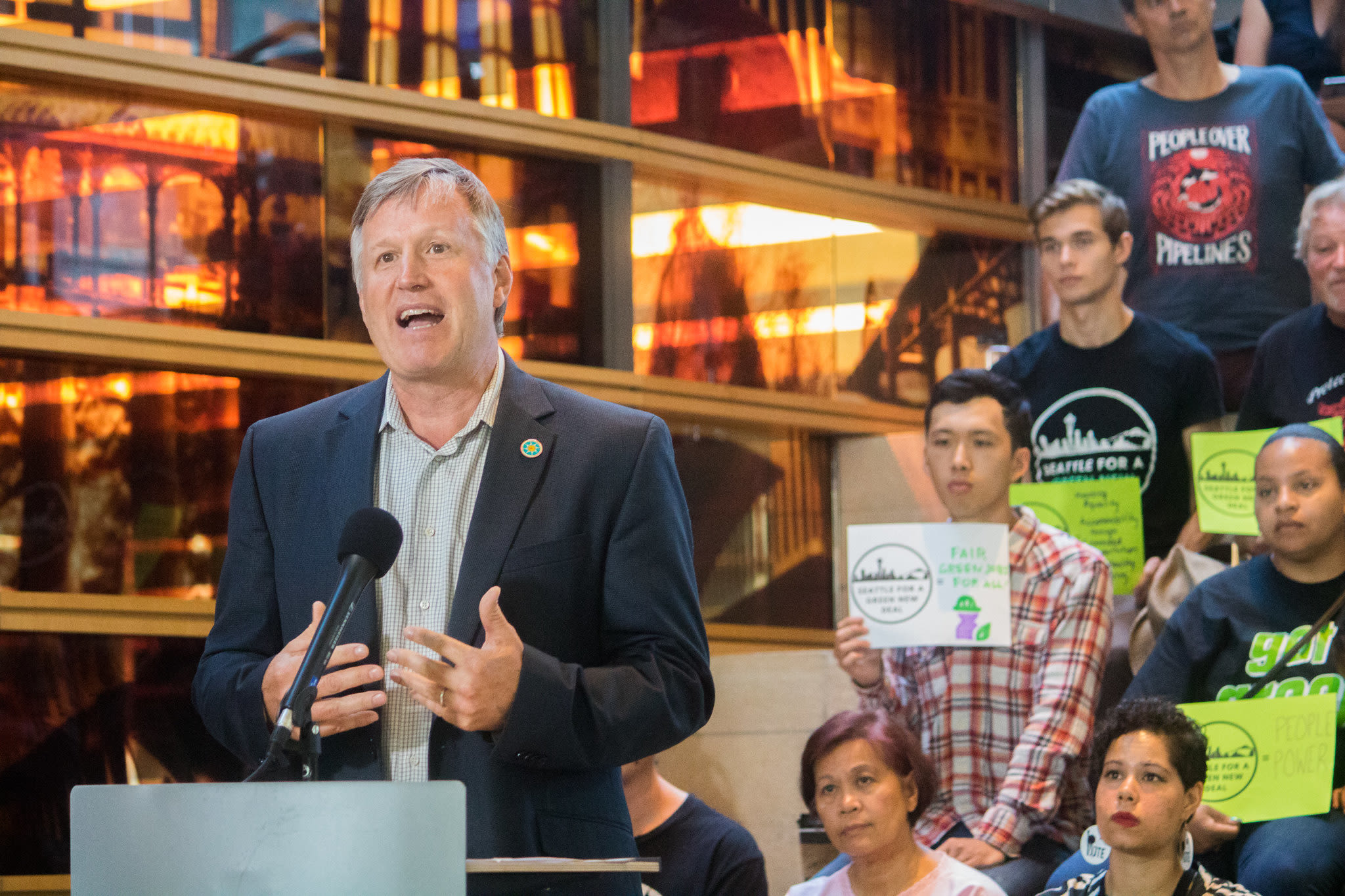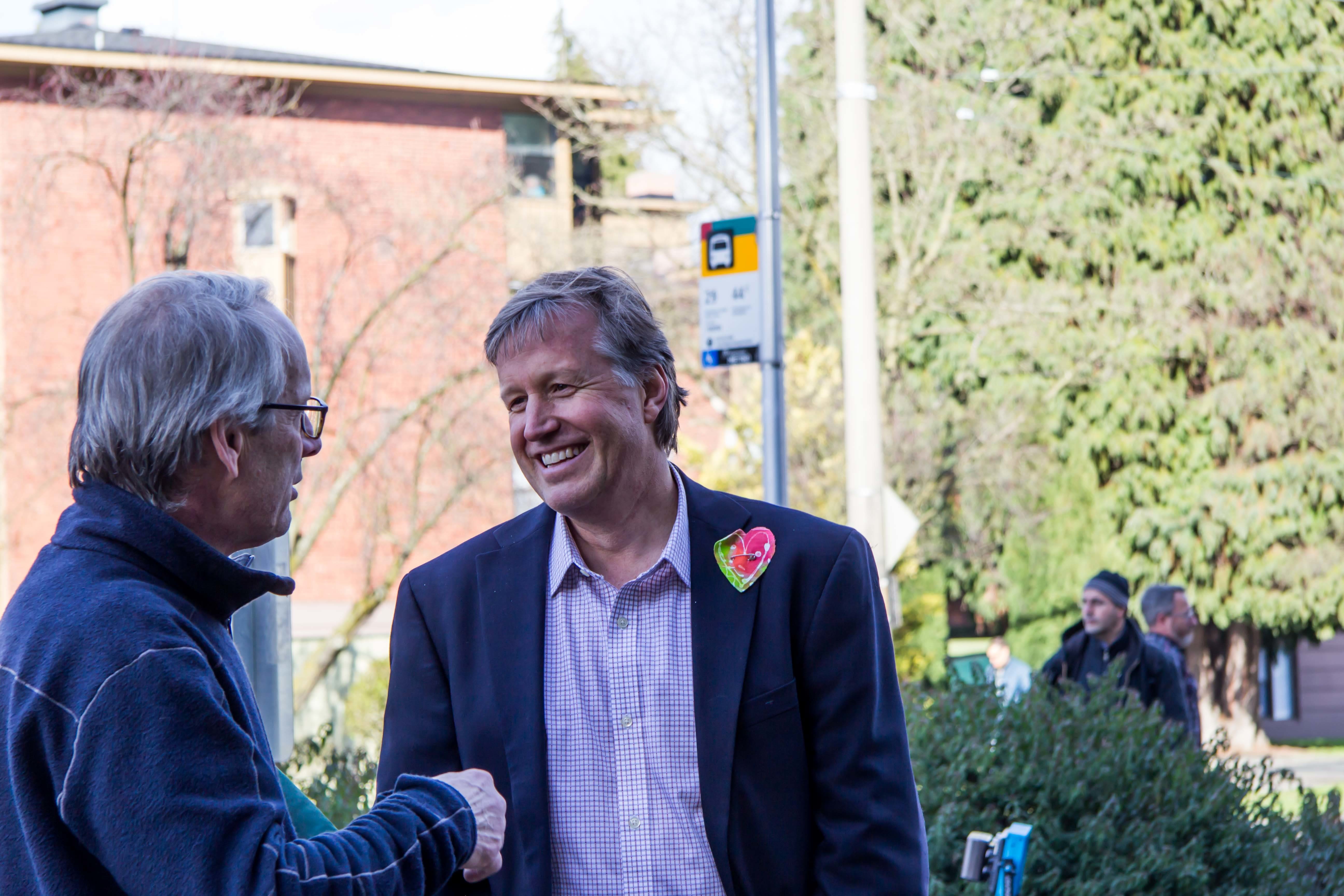City Hall
Council's Budget Priorities List Shoots Down Mayor's Parking Tax
The city council just released its budget priorities for next year. It's mostly pretty predictable stuff: Protect human services and public safety; maintain the city's commitment to neighborhood policing, even assuming the city doesn't hire 21 additional officers needed to complete the plan next year; reduce costs without hurting direct services; and raise revenues where appropriate.
That last one is where the council's agenda bumps up against Mayor Mike McGinn's. The council, the letter says, will support a 2.5 percentage point increase in the commercial parking tax to pay for ongoing costs related to replacing the viaduct and seawall. However, it continues, "Further increases in the parking tax or other taxes that unduly burden local business would not be prudent at this time."
McGinn has proposed raising the commercial parking tax beyond the 2.5 percent proposed by the council to pay for basic street and bridge maintenance and bike and pedestrian projects. Under state law, the city can raise the parking tax as much as 10 percent, to 20 percent total.
The letter is signed by seven council members; Nick Licata and Mike O'Brien did not sign the letter.
Licata said he didn't sign the letter because he felt it was unnecessary to send the mayor a letter when the council already informed him of their 2011-2012 budget priorities in February. And, he said, he felt the language was "a little bit too restrictive. I wanted to make sure we had more flexibility on the revenue side."
O'Brien says he, like Licata, is concerned about restricting the parking tax to waterfront projects. "I don't want it to preclude other smart transportation investments that we might want to do." Additionally, he says, "I wasn't sure what we were going to accomplish" by sending a somewhat combative letter to the mayor.
McGinn's spokesman Aaron Pickus has not yet responded to a question about the mayor's reaction to the letter.
The letter also asks the mayor not to assume that King County voters will pass a 0.2 percent sales tax measure in November. If voters do pass the increase, cities will receive 40 percent of the revenue---about $12 million in Seattle's case---of which one third would have to be spent on criminal justice.
That last one is where the council's agenda bumps up against Mayor Mike McGinn's. The council, the letter says, will support a 2.5 percentage point increase in the commercial parking tax to pay for ongoing costs related to replacing the viaduct and seawall. However, it continues, "Further increases in the parking tax or other taxes that unduly burden local business would not be prudent at this time."
McGinn has proposed raising the commercial parking tax beyond the 2.5 percent proposed by the council to pay for basic street and bridge maintenance and bike and pedestrian projects. Under state law, the city can raise the parking tax as much as 10 percent, to 20 percent total.
The letter is signed by seven council members; Nick Licata and Mike O'Brien did not sign the letter.
Licata said he didn't sign the letter because he felt it was unnecessary to send the mayor a letter when the council already informed him of their 2011-2012 budget priorities in February. And, he said, he felt the language was "a little bit too restrictive. I wanted to make sure we had more flexibility on the revenue side."
O'Brien says he, like Licata, is concerned about restricting the parking tax to waterfront projects. "I don't want it to preclude other smart transportation investments that we might want to do." Additionally, he says, "I wasn't sure what we were going to accomplish" by sending a somewhat combative letter to the mayor.
McGinn's spokesman Aaron Pickus has not yet responded to a question about the mayor's reaction to the letter.
The letter also asks the mayor not to assume that King County voters will pass a 0.2 percent sales tax measure in November. If voters do pass the increase, cities will receive 40 percent of the revenue---about $12 million in Seattle's case---of which one third would have to be spent on criminal justice.
Filed under
Share
Show Comments




